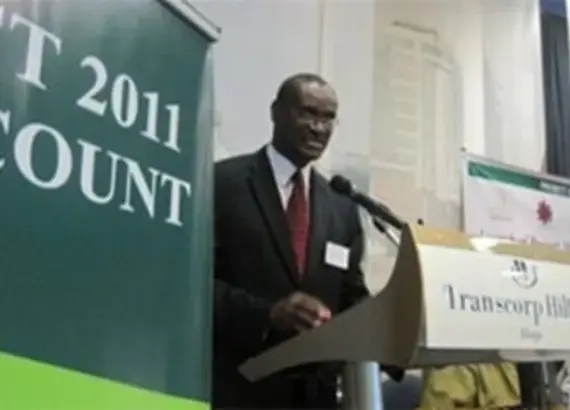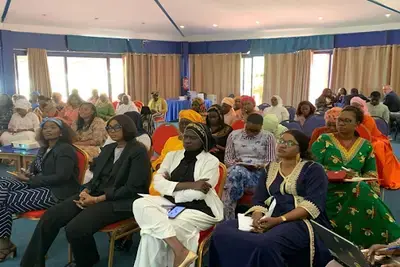
Success Story
Coalition to Monitor Vote for Better Elections in Nigeria
Many Nigerians hope that general elections scheduled for next year will mark a turning point for their country. Since the end of military rule in 1999, elections have been held every four years, but they have been progressively marred by egregious and pervasive fraud, making each poll less credible than the previous one. Dissatisfaction with the last elections, held in 2007, resulted in extensive violence that led to more than 200 deaths and diminishing citizen confidence in democratic institutions and processes.
But there are some positive signs as well, and civil society organizations are hoping that with better organization, enhanced activism and new tools, they can encourage a more transparent and less violent election.
A coalition of four prominent civil society groups – the Federation of Muslim Women’s Associations in Nigeria, Justice Development and Peace/Caritas Nigeria, the Nigerian Bar Association and the Transition Monitoring Group – have come together to form Project 2011 Swift Count to monitor the election process and verify the official results, hoping that their independent effort will deter fraud and help restore public trust in the election.
Project 2011 will rely on a statistical observation method known as parallel vote tabulation (PVT) or “swift count” as well as the use of information and communication technologies. PVTs have been used in a number of countries in Africa and elsewhere, most recently in Kenya, to verify vote counts and make qualitative observations on the election-day process.
Some 8,000 trained nonpartisan observers will be assigned to a statistically representative selection of polling stations. Throughout election day, they will use mobile phones and special SMS codes to transmit observations on the opening of polling stations, voting procedures, polling station closings, as well as the official results to a National Information Center (NIC) located in the capital. The information will provide an accurate picture of the election process across the country and verify the accuracy of the official count as announced by electoral authorities.
“Project 2011 Swift Count is aimed at enhancing public confidence in the electoral process by independently verifying the accuracy of the official results as announced by INEC [the Independent National Election Commission] in Abuja,” said Mashood Erubami, Project 2011 Swift Count national steering committee co-chair.
The swift count’s first major activity will be to monitor and report on the voter registration process, tentatively scheduled for early next year. This pre-election observation is intended to provide Nigerians with an objective look at the country’s election preparations.
As part of its overall support for the 2011 general elections in Nigeria, NDI is providing technical and financial assistance for Project 2011 Swift Count. In addition, the Institute is supporting civic groups to conduct voter education and deploy traditional domestic observers. NDI is also fielding an international observer mission for the elections. NDI conducted a pre-election assessment, which issued a statement on Oct. 15.
Pictured above: Project 2011 Swift Count Co-Chairman Akuro George of the Nigerian Bar Association speaks at the coalition's launch.
Published October 27, 2010



